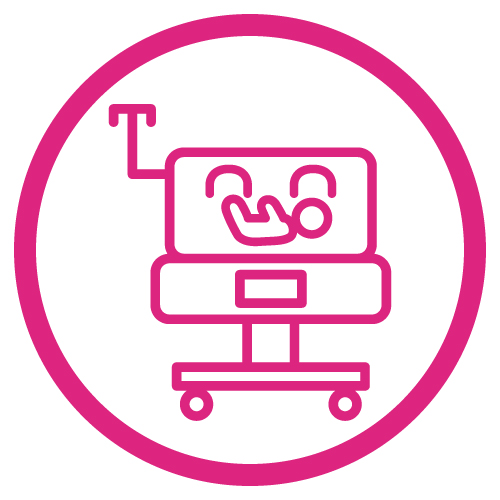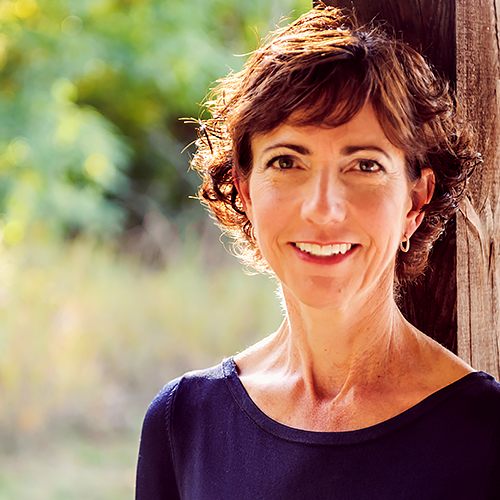 IBCLC Detailed Content Outline: Development and Nutrition Focused CERPs - Section I
IBCLC Detailed Content Outline: Development and Nutrition Focused CERPs - Section I
Access CERPs on Development and Nutrition for the IBCLC Detailed Content Outline recertification requirements. Enjoy convenient on-demand viewing of the latest Development and Nutrition focused IBCLC CERPs at your own pace.
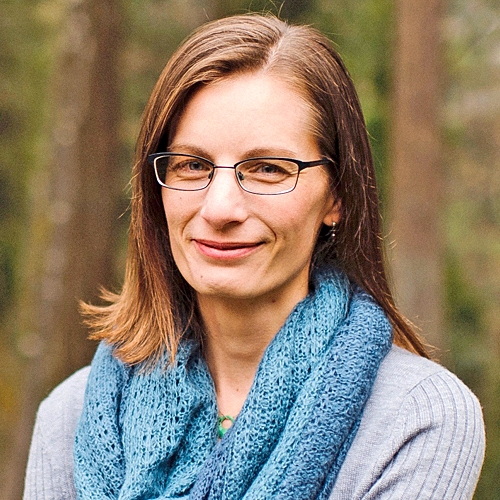
The Science of Infant Feeding: New Research on Gut Development, Microbiome, and Risk of Allergy

Alice Callahan completed her PhD in Nutritional Biology at UC Davis in 2008, followed by a postdoc in fetal physiology at the University of Arizona. She left the academic track in 2011 to pursue a dual career in college teaching and science writing. Her book, The Science of Mom: A Research-Based Guide to Your Baby’s First Year, about the science of raising a baby, was published in 2015 by Johns Hopkins University Press and was named one of the best science books of the year by Science News. As a freelance writer, Callahan covers health and nutrition topics – often focusing on pregnancy, infancy, and childhood – for many publications, including The New York Times, Washington Post, and Lifehacker. She and her family live in Eugene, Oregon, where she also teaches nutrition and physiology at the University of Oregon and Lane Community College.
Research continually uncovers the complex relationship between infant feeding and development. It’s driven by our fascination and desire to understand early development, but it also has real-world implications for the decisions parents make about how to feed their babies. New parents and even perinatal professionals are often confused about infant feeding guidelines, finding information to be conflicting, overwhelming, and ever-changing. We’ll start with an overview of how an infant’s gastrointestinal tract develops and what we know about how human milk consumption supports optimal development. Then we’ll delve into the latest research on intestinal permeability, early formula supplementation, and timing of introduction of solid foods to prevent allergies. Feeding is one of the primary ways that we care for and show babies that we love them, and by providing up-to-date and accurate information, perinatal professionals can help families feel calm and confident about their feeding choices.

View Details / Enroll
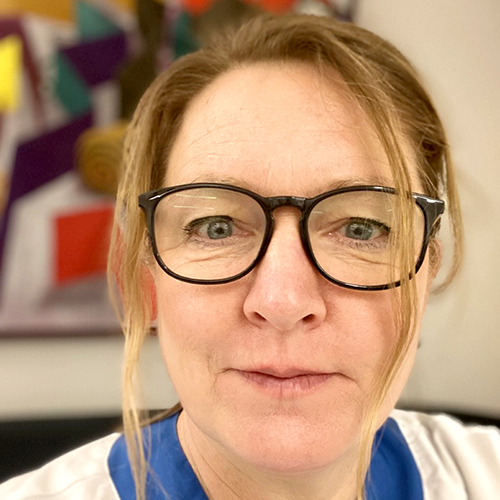
The Swedish Experience of Parental Involvement and Nurturing Care of Extremely Preterm Infants in the NICU

Became an RN, 1994. PhD in medical sciences Uppsala University, Sweden, 2012 (The name of the thesis: Kangaroo Mother Care - Parents’ experiences and patterns of application in two Swedish neonatal intensive care units).
Currently one of two Head nurses at the NICU in Uppsala, Sweden and are responsible for nursing care research, education and nursing care improvement. Also an associate professor at Uppsala University. Is an active researcher within research area around neonatal care and has about 30 scientific publications in peer-reviewed journals.
This presentation will focus on the nurturing care of extremely preterm infants and their parents. Parent-infant separation is commonplace in NICUs and even more if the infant is born extremely preterm. Parent’s presence could be restricted by the rules and routines in the neonatal intensive care environment and skin-to-skin contact is not always possible due to the infant’s condition. Early and extensive contact between the infant and the parents enables the parents to get to know their infant and to feel and act like parents. At the NICU in Uppsala, Sweden, our experience is that parents, even those who have an extremely preterm infant want to be present and to stay close, 24/7, to their infant during the infants NICU stay. The aim of this presentation is to report clinical experiences from the NICU in Uppsala about how the NICU environment and NICU staff can facilitate or hinder parental presence, parental participation, and skin-to-skin contact when the infant is born extremely preterm.
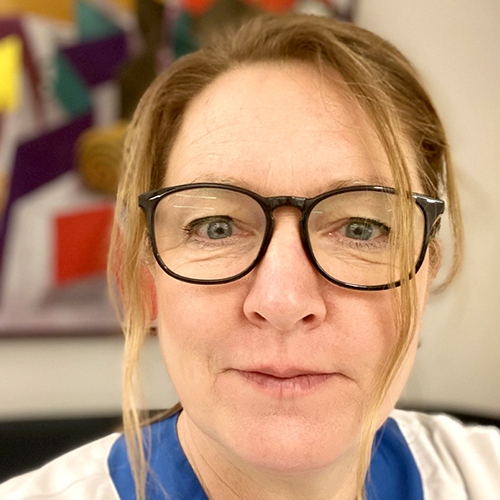
View Details / Enroll
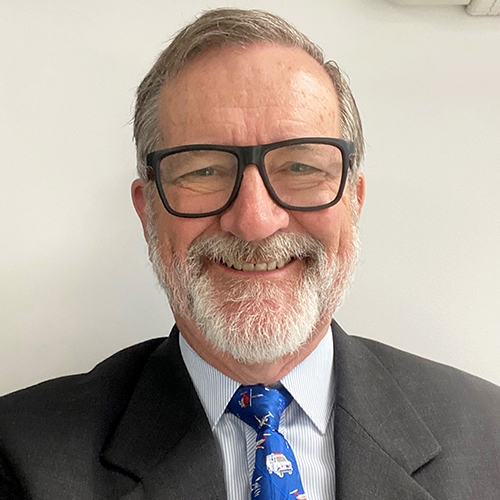

Dr. Andrew Berry, AM MB BS FRACP, is a Neonatal and Paediatric Retrieval Specialist. He has vast experience in neonatal and paediatric critical care transport since 1977. This includes being the head of Neonatal Intensive Care, and Director of Newborn Transport Service, both at Royal Alexandra Hospital for Children in Sydney, Australia.He is currently State Director at NETS, the Newborn and Paediatric Emergency Transport Service of New South Wales, Australia.
Dr. Berry is a fixed wing and rotary wing pilot. In 1989 he co-founded Child Flight Inc., and dedicated helicopter service for children.
His expertise is regularly sought on how to develop and operate emergency transport services and associated advisory programs for perinatal, neonatal and paediatric acute care in Australia, Brunei, New Zealand, Malaysia, Hong Kong, Canada, England, Scotland, Singapore, and the USA.
Air transport is commonly required for acute patient transport; including of sick newborns. Regionalization of tertiary neonatal care often means longer transport distances for patients between local referring hospitals and places of definitive care. The physiology of the newborn and some unique features of disease processes in the newborn present some challenges in safe transport by air. Fixed wing and rotary wing transport modes expose the sick newborn to different stressors according to their own unique variable cabin environments and altitude. An understanding of how newborns react to air transport and how to modify the air transport environment can both contribute to safer, more effective transport of the newborn.
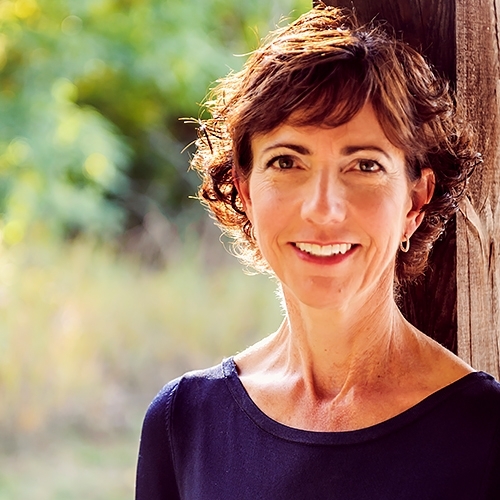

Dr. Sharon Unger comes from the East Coast of Canada and is a neonatologist at Sinai Health System in Toronto, Canada. She is a co-primary investigator for the Canadian Institutes of Health Research funded OptiMoM and MaxiMoM programs of research as well as the medical director for the Rogers Hixon Ontario Human Milk Bank. Her research interests are primarily in the use of human milk for the high risk neonate and its long term impact.
Mother’s milk is the unequalled nutritional source for the preterm or medically fragile neonate. Beyond its nutritional impact, it contains a myriad of bioactive molecules that are of particular health importance for the sick neonate. A majority of mothers who are pump dependent with an infant in a neonatal intensive care unit have an incomplete supply of their own milk. In this instance, human donor milk is an important supplement to have available while the mother is supported to increase her own milk supply. This lecture will focus on various aspects of the use of human donor milk including a review of the differences between mother’s milk and donor milk and the current methodologies used for processing donor milk. Recommended clinical guidelines will be discussed that are based on the evidence for short and long term health outcomes following the use of donor milk in the neonatal period. Future considerations will be explored including ethical issues with respect to donor milk use.

View Details / Enroll

The Vagus Nerve: Branchial Motor / Special Visceral Efferents: The Pharynx, Larynx, Soft Palate and one tiny tongue muscle

Michelle has been a pediatric neurodevelopmental Occupational therapist specializing in precrawling infants for over 26 years. She has specialty certifications and training in lactation, manual therapy, and pre and peri natal psychology. Michelle has specialized in optimal cranial nerve function and oral restrictions, with an emphasis on infant movement, innate biological imperatives and human potential, providing novel curriculums, support and resources for both professionals and parents. She enjoys collaborating and working in teams for babies and families going through the tethered oral tissues release process.
Topic: Breastfeeding and Cranial Nerve Dysfunction – the what, who and why of Cranial Nerve Dysfunction in the newborn to precrawling baby - [View Abstract]
Topic: Compensatory vs Novel Movements: 3 Keys for Babies With Tongue, Lip and Buccal Restrictions - [View Abstract]
Topic: Interoception: Beyond the Homunculus....The Real Sixth Sense and Its Primary Function as Sensory Input to the Autonomic Nervous System - [View Abstract]
Topic: The Vagus Nerve: Branchial Motor / Special Visceral Efferents: The Pharynx, Larynx, Soft Palate and one tiny tongue muscle - [View Abstract]
Topic: TummyTime!™ : A Therapeutic Strategy for Parents and Babies - [View Abstract]
Babies with tongue/oral restrictions and Cranial Nerve Dysfunction (CND) present with clinical indicators of decreased airway patency which interrupt latch and breastfeeding skills, airway development and Autonomic Nervous System regulation. These difficulties are noted clinically by mouth breathing, open mouth posture, stridor, snoring and other noisy breathing, suboptimal breathing patterns, decreased suck/swallow/breathe coordination and poor tongue and jaw posture / movement during activity and rest. Many of us are familiar with the Vagus nerve and the vital role it plays as our body’s sensory/afferent relayer of information to the central nervous system, as well, the Vagus serves as the primary parasympathetic influence on most of our viscera, including our heart, which helps us regulate. However, what we often gloss over is the motor input to the skeletal muscles of the soft palate, pharynx, larynx and tongue which directly impact breathing. This lecture will delve into this fascinating topic and provide clinical applications.
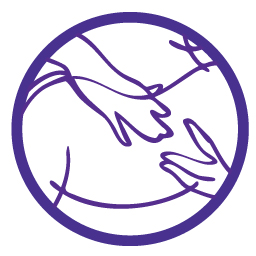
View Details / Enroll
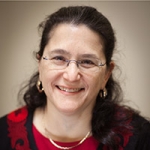

Naomi Bar-Yam, PhD, ACSW, has been working in maternal and child health for over 30 years as an educator, researcher, advocate, and writer. She is the immediate past president of the Human Milk Banking Association of North America (HMBANA) and the founding director of Mothers’ Milk Bank Northeast, which provides safe donor milk to hospitals and families throughout the northeastern US. An expert on access to perinatal health care and policies that support breastfeeding, she has been a consultant to the Centers for Disease Control (on a panel that created “The CDC Guide to Breastfeeding Interventions”), to the United States Breastfeeding Committee (developing an issue paper addressed to CEOs and legislators on breastfeeding and the workplace), and to the March of Dimes (developing educational material for women and families who are medically and socially vulnerable to high-risk pregnancy). She also developed a curriculum for hospital personnel about combining breastfeeding with their work. She reviews articles submitted to the Journal of Human Lactation, Breastfeeding Medicine, and other publications related to breastfeeding, milk banking, and access to perinatal child care. As Executive Director of Mothers’ Milk Bank Northeast, she is thoroughly versed in the technical, procedural, and ethical aspects of milk banking. She often speaks at professional conferences, hospital staff trainings, and grand rounds about milk banking and breastfeeding policies.
Topic: Ethical Concerns in Human Milk Exchange - [View Abstract]
Topic: Getting Milk to Babies: Social, medical, economic and commercial forces - [View Abstract]
Topic: The Whys and Hows of Using Banked Donor Milk - [View Abstract]
As the research on the importance of human milk increases, the use of donor human milk for premature, fragile babies is likewise increasing, New milk banks are being established all over the world. This development raises many practical, research and ethical questions. This talk covers: i) current research on the benefits, challenges and appropriate uses of donor human milk; ii) safety of pasteurized donor human milk; and iii) practical aspects of using banked human milk in NICUs and other hospital units.
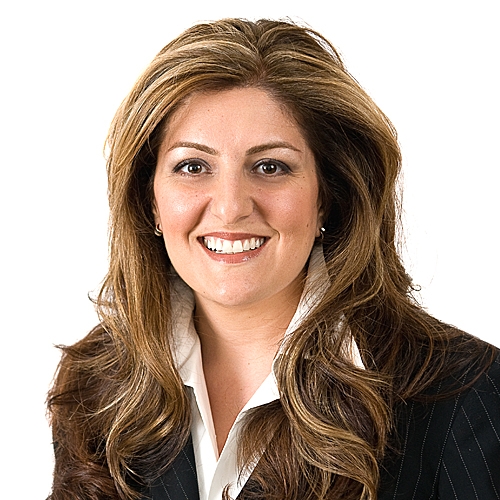
Tongue Tie and Orofacial Myofunctional Development

Dr Marjan Jones, a dental surgeon in Brisbane Australia pioneered a multi-disciplinary approach to the treatment of oral restrictions in Australia. With over 20 years’ experience with dental lasers and extensive knowledge of the comprehensive treatment of oral restrictions, her practice treats patients of all ages, offering a team-based approach to surgery incorporating in-house myofunctional therapy and orthodontics for treatment for children and adults. For infant patients, she collaborates with IBCLCs and cranial therapists for a comprehensive approach toward functional outcomes. She co-founded the Tongue Tie Institute designed to advance the education of health professionals in the treatment of oral restrictions. She now lectures to practitioners from Australia and around the world who have been introduced to a team approach to the management of oral restrictions. She has personal experience with the effect of tongue ties and their effect on herself and family (including breastfeeding challenges) and is determined to help others avoid or overcome their impact. She is a Fellow of the World Clinical Laser Institute, a member of the Academy of Laser Dentistry, the Academy of Breastfeeding Medicine and was the immediate past Chairperson of the Interim Board of the International Consortium of Ankylofrenula Professionals (ICAP). He passion for breastfeeding has resulted in studies toward IBCLC certification.
Michelangelo at work - Tongue Tie and Orofacial Myofunctional Development
Our oral and facial muscles are the master sculptors of our jaws and face. Research and clinical findings show that changing resting oral posture and functional habits of our oral and facial muscles not only influence structure but also affect function. The important functions of the orofacial region include breathing, eating/drinking (including breastfeeding) and speaking.
Breastfeeding is the premier and pivotal determinant of orofacial myofunctional habits. Beyond the many risks of not breastfeeding, malocclusion (poorly positioned jaws and teeth) is a very significant risk.
As such it is important that all health practitioners working with neonates rally to educate, accompany and support breastfeeding dyads toward functional and breastfeeding for as long as possible.
The tongue’s ability to move (particularly to elevate) affects breastfeeding biomechanics. As such, a tethered tongue’s range of motion and span of influence is a deviation from the physiologic norm. Teaching a dyad to compensate or simply manage through sub-optimal breastfeeding and its resulting symptoms can have consequences in functional outcomes later in life. Compensations have consequences that emerge well beyond breastfeeding years.

Touch a Life, Impact a Lifetime: The Therapeutic Value of YOU

A leader in neonatal nursing, Mary Coughlin MS, NNP, RNC-E has pioneered the concept of trauma-informed care as a biologically relevant paradigm for hospitalized newborns, infants, and their families. An internationally recognized expert in the field of age-appropriate care, Ms. Coughlin has over 35 years of nursing experience beginning in the US Air Force Nurse Corp and culminating in her current role as President and Founder of Caring Essentials Collaborative. A published author of a myriad of manuscripts, chapters and textbooks, Ms. Coughlin has mentored close to 10,000 interdisciplinary NICU clinicians from over 14 countries to transform the experience of care for the hospitalized infant and family in crisis.
Early life adversity and the associated toxic stress literally gets under our skin and is embedded in our biology. Authentic nurturing experiences during early life, or the lack of them, are directly linked to mental health outcomes. The sense of touch plays a salient role in social relationships with important neurodevelopmental and psycho-socio-emotional outcomes. Healing presence and authenticity underlie caring actions, attitudes and behaviors. This talk will introduce the biological underpinnings of our unique therapeutic value in the clinical setting.

View Details / Enroll


Nancy Mohrbacher was born and raised in the Chicago area, where she lives today. She is a board-certified lactation consultant who has been helping nursing mothers since 1982. Her breastfeeding books for parents and professionals include Breastfeeding Answers Made Simple and its Pocket Guide; Breastfeeding Made Simple(with Kathleen Kendall-Tackett); Working and Breastfeeding Made Simple; and Breastfeeding Solutions and its companion app for Android and iPhone.
Nancy currently contracts with hospitals to improve breastfeeding practices, writes for many publications, and speaks at events around the world. Nancy was in the first group of 16 to be honored for her lifetime contributions to breastfeeding with the designation FILCA, Fellow of the International Lactation Consultant Association.
Topic: Applying Bioethics to Milk Banking and Milk Sharing - [View Abstract]
Topic: Concerns About Low Milk Production - [View Abstract]
Topic: Transitioning the Preterm Infant to the Breast - [View Abstract]
Topic: Using Gravity-Assisted Positions to Prevent Early Breastfeeding Problems - [View Abstract]
Topic: What Mothers Need to Exclusively Breastfeed - [View Abstract]
Topic: What's New In Lactation - [View Abstract]
To most effectively help preterm babies learn to breastfeed, we need to first understand how preterm babies’ breastfeeding behaviors differ from term babies. This talk describes the research-based 7 preterm breastfeeding stages, the “road map” that shows parents and providers what to expect during this transition. It also includes strategies that can smooth the path and speed the journey to exclusive breastfeeding.
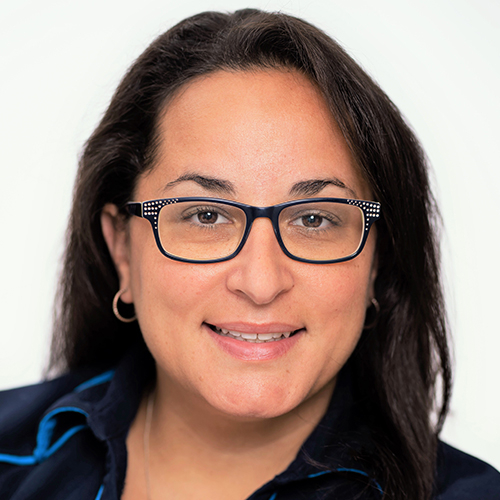

Bridget Liriano is a registered nurse with over 15 years of experience in pediatrics and holds a Master of Nursing degree from the University of Toronto in Ontario, Canada. As the Quality Leader and a Transport Clinician for the Acute Care Transport Service (ACTS) Team at Sick Kids, Bridget is committed to providing expert medical care in the stabilization and safe transport of acutely ill neonates and children. She is a strong advocate for quality and safety, which is demonstrated through her involvement in clinical research, team-based projects and quality improvement initiatives. She has formerly covered the role of Interprofessional Education Specialist, working in collaboration with the leadership team to support the educational needs of her ACTS colleagues. Bridget has a passion for clinical education and simulation-based training, with a focus on interprofessional collaboration, peer mentorship, clinical debrief and neonatal resuscitation.
This session will highlight important aspects of resuscitation and stabilization of the neonate with an evidence based approach to clinical practice. Through case based examples, the audience will explore how effective communication, interprofessional collaboration and reference to clinical care pathways can promote patient safety and quality of care for the most vulnerable neonatal patients. Learners will gain a better understanding of the triage process and the preparation of patients for acute care transport. The session will conclude with a review of the ‘lessons learned’ from transport case presentations and their outcomes.





